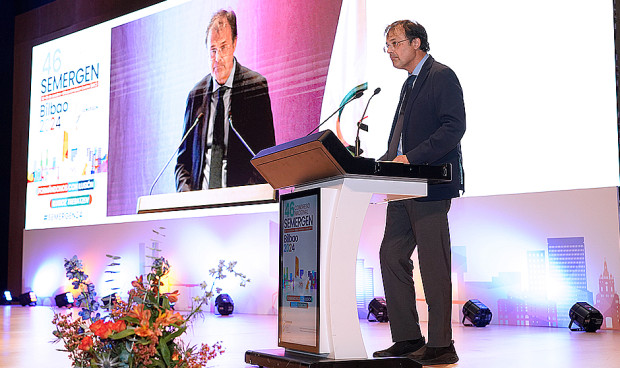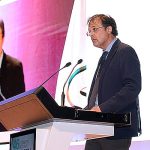
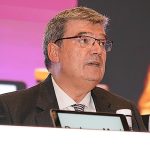
The Minister of Health of Euskadi, Alberto Martínez, at the inauguration of the 46th National Congress of Semergen.
Regarding the projects that have been launched, Martínez has highlighted that they have “destined” to achieve a great agreement “that help improve the quality of the health system in collaboration with the different actors that make up our health system, as well as with other political, social and institutional agents.
Along these lines, Martínez has commented that the objective is “delve into improving the quality of our health systemguaranteeing universal, real and effective accessibility, reinforcing the public and free management of the system.”
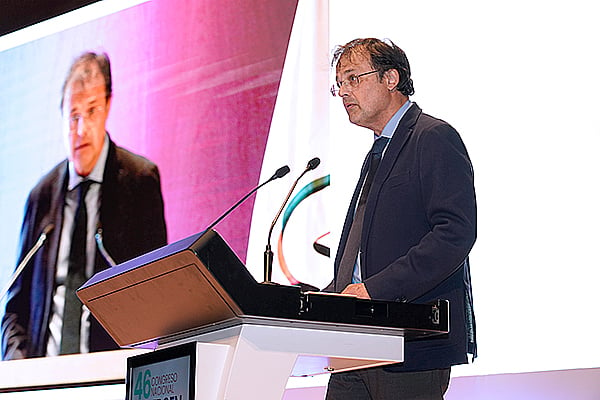
Alberto Martínez, Minister of Health of Euskadi |
The second measure that the Minister of Health has announced is to “design a shock plan in Primary Care to improve accessibilityreducing the waiting time to be attended to and increasing the flexibility of the agendas, giving management autonomy to the teams and with a 40 percent reduction in bureaucracy in six months.
The idea that Martínez uses is that “the acute pathology be seen by the healthcare team in the first 24 hours and, in the case of chronic cases, according to the agenda, with averages of 48 hours”.
“We are going to adapt the structures to the demographic reality, expanding, whenever possible, the staff of medical personnel and nursing positions, de-bureaucratizing their work, developing training plans and promoting geographical stability, especially in rural or difficult areas. coverage,” said the Health Minister.
Special public job offer
Martínez has commented that he is going to “call for a special public job offeronly with a competition phase, for positions that are difficult to fill.” Likewise, it wants to “incentivize the teams that assume the occupation of these positions, concentrating working days, with a commitment to stay for four years before being able to transfer their position to any other destination of the health system”.
As a result of this, the Health Minister has encouraged young people to apply for this call of special public employment offer taking advantage of the presence “of young doctors at the event.”
“Difficult years in Primary Care”
Martínez has emphasized that there have been and are currently experiencing “difficult years in Primary Care” due, among other aspects, to the “high workloads, shortage of professionals and lack of vocations.”
As a result of this, the Basque Health Minister has reminded all Family and Community Medicine health professionals that They are “the essence of the system” and has highlighted “the capacity and courage” that they have shown to sustain it.
Along these lines, he has indicated that public institutions are “vehicles for others” and has pointed out that politics has something in common with family doctors. “Primary Care is closeness, as is the local institution.”
Primary Care: “closeness and friendship”
Another detail that Martínez has highlighted is that this event “It is a symbol that reflects interest and concern that family doctors have for the promotion, prevention and care of health”.
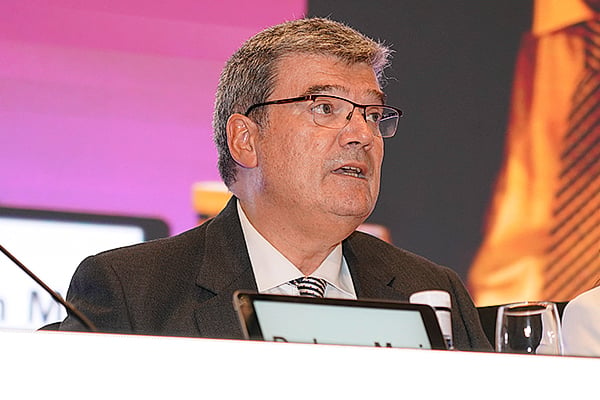
Juan Maria Aburto Rique, mayor of Bilbao |
Along these lines, the mayor of Bilbao, Juan María Aburto, has indicated that “after the pandemic, selfishness has set in” in society. “It is very necessary to recover the community. I say community because I believe that Family Medicine serves to weave ties. They are privileged observers to see what is happening in the community, what the patients’ environment is, to detect loneliness, violence of gender and vulnerability, in short”.
Likewise, Aburto has pointed out that “Family Medicine goes beyond care. It implies closeness, empathy. “These are things that really exist and that must be delved deeper.”
Furthermore, he has insisted on the idea that “the doctor-patient relationship must be special” and added that “the mission of Medicine cannot only be to cure, but to prevent disease.”
“The family doctor lives for the people”
The president of Semergen, José Polo García, has indicated, as a result of this matter, that “The family doctor is a person who lives for people, he is the closest to the patient.”
Regarding this, Polo García has commented that they are doctors who are “always there for others” and it is an important factor to “instill it in the residents.”
Finally, he has acknowledged that the Problem Service “has problems” and has assured that “Semergen may criticize but will always be at the side of the administrations to help, debate and solve these setbacks”.
Also present at the event were the mayor of Barakaldo, Amaia del Campo; the president of the Organizing Committee, José Manuel Calleja Pascual; and the president of the Scientific Committee, Noelia Fontanillas.
The information published in Medical Writing contains statements, data and declarations from official institutions and health professionals. However, if you have any questions related to your health, consult your corresponding health specialist.
